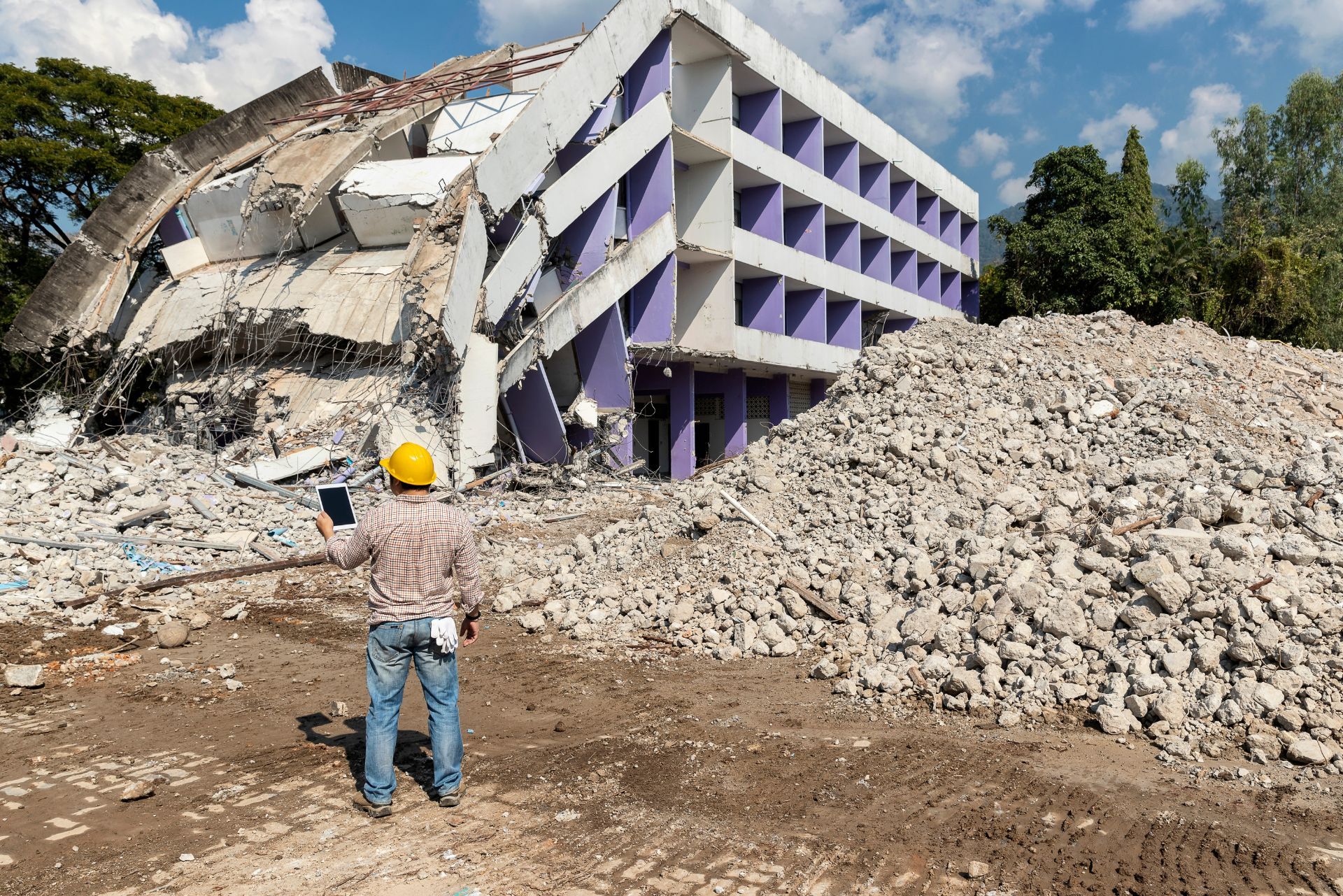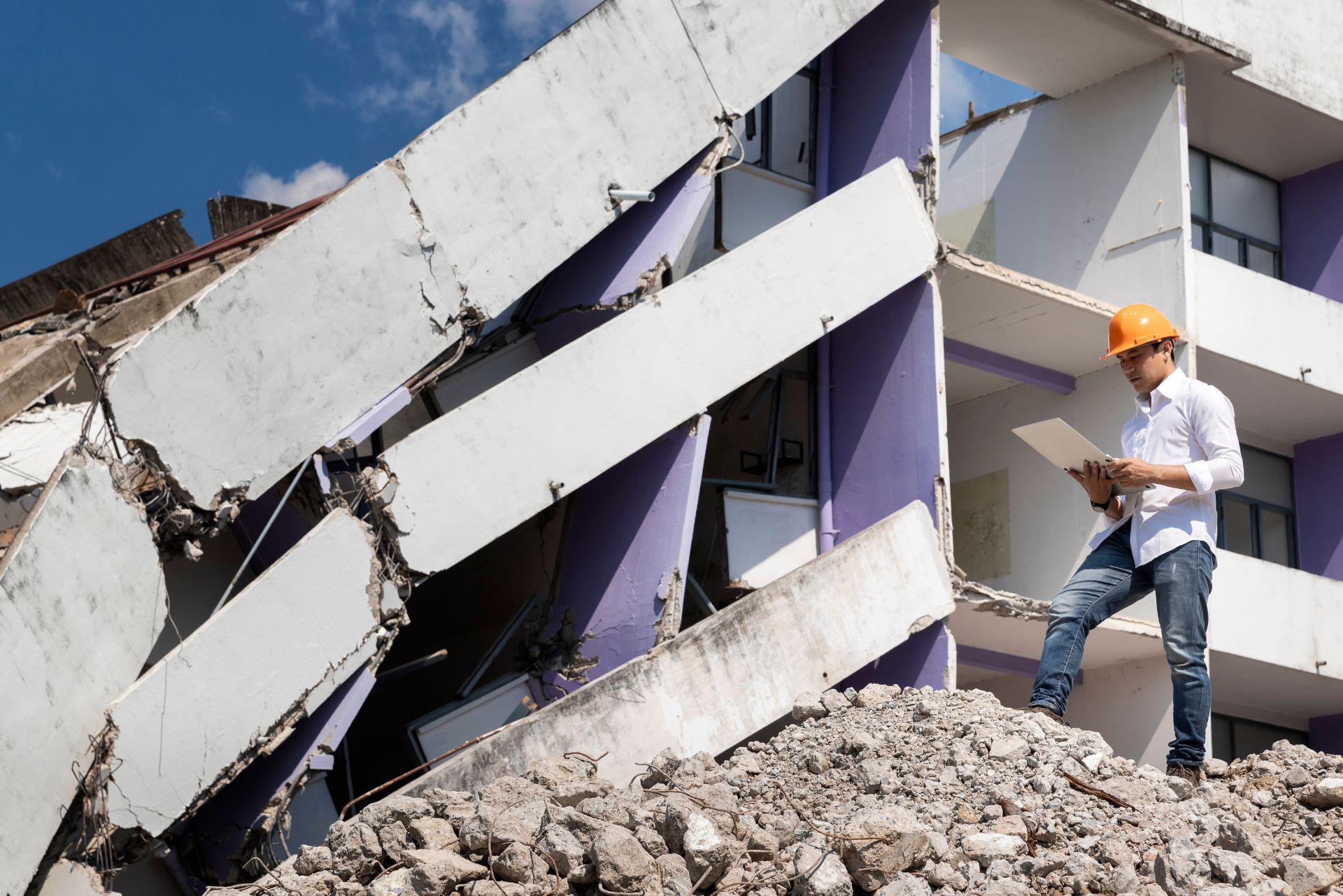Top 3 Recommended Policies

When it comes to natural disasters, many homeowners think of floods, hurricanes, and tornadoes. However, earthquakes can also pose a significant risk, even in regions where they are less common, such as Pennsylvania. Understanding earthquake insurance is crucial for homeowners in this state, especially as seismic activity can occur with little warning. This article will explore everything you need to know about earthquake insurance in Pennsylvania.
Understanding Earthquake Risks in Pennsylvania
While Pennsylvania is not located on the infamous San Andreas Fault, it is not immune to earthquakes. In fact, the state experiences minor tremors regularly. The risk of a more significant earthquake, though low, is a possibility that residents should consider.
Seismic Activity in the Region
The eastern United States, including Pennsylvania, has a history of seismic activity. Earthquakes in this region tend to be less frequent and less intense than those in the western U.S., but they can still cause damage. The most notable earthquake in Pennsylvania's history occurred in 1998, registering a magnitude of 5.2 and causing minor damage in the central part of the state. This event served as a wake-up call for many residents, highlighting the importance of preparedness and awareness regarding seismic risks.
Residents should be aware that while the risk may seem low, the potential for an earthquake to cause structural damage exists. Therefore, understanding the nature of seismic activity in the area is essential for homeowners. In addition to the historical data, scientists continue to monitor fault lines and seismic activity, providing valuable information that can help inform local building codes and safety measures. Communities are encouraged to stay informed about these developments and participate in local preparedness initiatives.
Common Misconceptions
Many people believe that earthquake insurance is unnecessary in Pennsylvania due to the perceived low risk. However, this belief can lead to significant financial loss in the event of an earthquake. It is important to recognize that even minor tremors can cause damage to homes, especially older structures that may not be built to withstand seismic activity. Homeowners should assess their properties and consider retrofitting options to enhance structural integrity against potential quakes.
Another misconception is that
standard homeowners insurance covers earthquake damage. In reality, most standard policies exclude earthquake damage, making it essential to seek separate earthquake insurance coverage. This additional policy can provide peace of mind and financial protection, especially for those living in areas with a history of seismic events. Furthermore, understanding the specifics of earthquake insurance, such as deductibles and coverage limits, is crucial for making informed decisions about safeguarding one’s home and assets.

What is Earthquake Insurance?
Earthquake insurance is a specialized policy designed to cover damages resulting from seismic activity. This type of insurance can help homeowners recover financially after an earthquake, covering repairs to the home and personal property losses. Given the unpredictable nature of earthquakes, which can strike without warning, having this insurance can provide peace of mind for those living in high-risk areas. It is essential to recognize that standard homeowners insurance policies typically do not include coverage for earthquake damage, making this specialized insurance a critical consideration for many.
Types of Coverage
Earthquake insurance typically includes two main types of coverage: dwelling coverage and personal property coverage. Dwelling coverage helps pay for repairs to the structure of the home, while personal property coverage assists with replacing or repairing personal belongings damaged during an earthquake. Additionally, some policies may offer coverage for detached structures, such as garages or sheds, which can also suffer damage during seismic events. Homeowners should carefully assess their property and consider whether they need to include these additional structures in their coverage plans.
Some policies may also offer additional living expenses coverage, which helps pay for temporary housing if the home becomes uninhabitable due to earthquake damage. This can be particularly important in severe cases where repairs may take weeks or even months. Understanding the specifics of each type of coverage is crucial for homeowners considering earthquake insurance. It is advisable to review policy details thoroughly and consult with an insurance agent to ensure that all potential risks are adequately addressed.
Deductibles and Premiums
Like other types of insurance, earthquake insurance comes with deductibles and premiums. Deductibles for earthquake insurance can be significantly higher than standard homeowners insurance, often ranging from 10% to 20% of the policy limit. This means that homeowners may need to pay a substantial amount out of pocket before the insurance kicks in. It is essential for homeowners to factor in these costs when budgeting for insurance, as a higher deductible can lead to lower premiums, but may also result in greater financial strain in the event of a claim.
Premiums for earthquake insurance can vary widely based on factors such as location, the age of the home, and the type of coverage selected. Homes situated in areas with a high seismic risk, like California or Alaska, often face higher premiums due to the increased likelihood of earthquake damage. Homeowners should shop around and compare quotes from different insurers to find the best policy for their needs. Additionally, some insurers may offer discounts for homeowners who take proactive measures to strengthen their homes against earthquakes, such as retrofitting or reinforcing foundations. This not only helps in reducing insurance costs but also enhances the overall safety and resilience of the home against potential seismic events.
How to Obtain Earthquake Insurance in Pennsylvania
Obtaining earthquake insurance in Pennsylvania involves several steps. Homeowners should conduct thorough research and consult with insurance agents to ensure they select the right policy for their needs.
Assessing Your Risk
Before purchasing earthquake insurance, homeowners should assess their risk level. Factors to consider include the age and condition of the home, its location, and any previous seismic activity in the area. Understanding these factors can help homeowners make informed decisions about the type and amount of coverage needed.
Additionally, homeowners should consider the geological characteristics of their region. Pennsylvania is not typically known for high seismic activity, but certain areas may still be prone to tremors. Resources such as the United States Geological Survey (USGS) can provide valuable data on historical earthquakes in specific locales, helping homeowners gauge their vulnerability. Furthermore, engaging with local building codes and regulations can also shed light on the structural integrity of homes in the area, which can influence the decision to invest in earthquake insurance.
Consulting with Insurance Agents
Consulting with insurance agents who specialize in earthquake insurance is a vital step in the process. These professionals can provide valuable insights into the types of coverage available, as well as help homeowners understand the nuances of various policies.
Agents can also assist in comparing quotes from different insurance companies, ensuring homeowners find the best coverage at a competitive price. It's essential to ask questions and clarify any uncertainties during this process. Moreover, homeowners should inquire about additional endorsements or riders that can enhance their policy, such as coverage for personal property or additional living expenses in the event of a disaster. Understanding the claims process and what documentation will be required can also help streamline any future claims, making it easier to recover from potential damages.
The Importance of Earthquake Preparedness
While earthquake insurance is a critical component of financial protection, homeowners should also prioritize preparedness. Being prepared can minimize damage and ensure safety during an earthquake. Understanding the risks associated with living in earthquake-prone areas is essential, as it allows individuals to take proactive measures that could save lives and reduce the financial burden of repairs and recovery.
Creating an Emergency Plan
Every household should have an emergency plan in place. This plan should outline what to do during an earthquake, including where to take cover and how to communicate with family members. Practicing the plan regularly can help ensure that everyone knows their role in the event of an earthquake. It’s also beneficial to include a designated meeting place outside the home where family members can regroup after the shaking stops. This can be particularly important if communication systems are down or if family members are separated during the quake.
Securing Your Home
Securing the home can significantly reduce the risk of damage during an earthquake. Homeowners should consider retrofitting their homes to meet seismic standards, securing heavy furniture and appliances, and ensuring that the foundation is stable. These steps can help mitigate potential damage and enhance overall safety. Additionally, it’s wise to conduct a thorough inventory of your home’s contents and identify items that could pose a risk during an earthquake, such as glassware or picture frames. By relocating or reinforcing these items, homeowners can further protect both their property and their loved ones from injury.
Moreover, investing in earthquake-resistant materials during renovations or new constructions can provide long-term benefits. For instance, using flexible building materials can allow structures to absorb and dissipate seismic energy more effectively. Homeowners should also consider consulting with structural engineers who specialize in seismic safety to assess their property and recommend specific improvements tailored to their unique situation. By taking these proactive steps, individuals can create a safer living environment that stands resilient against the unpredictable nature of earthquakes.

Financial Considerations
Understanding the financial implications of earthquake insurance is crucial for homeowners. The cost of premiums, deductibles, and potential out-of-pocket expenses should all be considered when evaluating the need for coverage.
Cost of Earthquake Insurance
The cost of earthquake insurance can vary significantly based on several factors, including the location of the home, its age, and the level of coverage selected. On average, homeowners in Pennsylvania can expect to pay anywhere from $100 to $500 annually for earthquake insurance, depending on these variables.
While this may seem like an additional expense, the potential cost of repairs after an earthquake can far exceed the annual premium, making it a worthwhile investment for many homeowners. For instance, a moderate earthquake can cause structural damage that could run into the tens of thousands of dollars, especially if the home is older or not built to current seismic standards. Furthermore, the emotional toll of losing a home and personal belongings can be devastating, and having insurance can provide a safety net that alleviates some of that burden.
Assessing Your Financial Risk
Homeowners should assess their financial risk when considering earthquake insurance. This includes evaluating the potential cost of repairs, the value of personal belongings, and the likelihood of needing temporary housing after an earthquake. By understanding these factors, homeowners can make informed decisions about the level of coverage needed. Additionally, it is important to consider the financial stability of the insurance provider. Researching the company's claims history and customer reviews can provide insight into how they handle claims, particularly in the aftermath of a disaster when many policyholders may be seeking assistance simultaneously.
Moreover, homeowners should also take into account the specific risks associated with their geographic area. For example, regions that are closer to fault lines or have a history of seismic activity may warrant higher coverage limits than those in more stable areas. It may also be beneficial to consult with a financial advisor or insurance expert who can help tailor a policy that aligns with both the homeowner's financial situation and risk tolerance. This proactive approach not only aids in selecting the right coverage but also ensures that homeowners are prepared for any potential financial fallout from an earthquake.
Conclusion
Earthquake insurance is an essential consideration for homeowners in Pennsylvania, despite the state's relatively low seismic activity. Understanding the risks, types of coverage, and the importance of preparedness can help homeowners protect their investments and ensure peace of mind.
By taking proactive steps to assess risk, consult with insurance professionals, and create a comprehensive emergency plan, residents can significantly enhance their safety and financial security in the face of potential earthquakes. Investing in earthquake insurance may seem like an unnecessary expense for some, but the potential benefits far outweigh the costs, making it a critical component of responsible homeownership.
Contact Us

